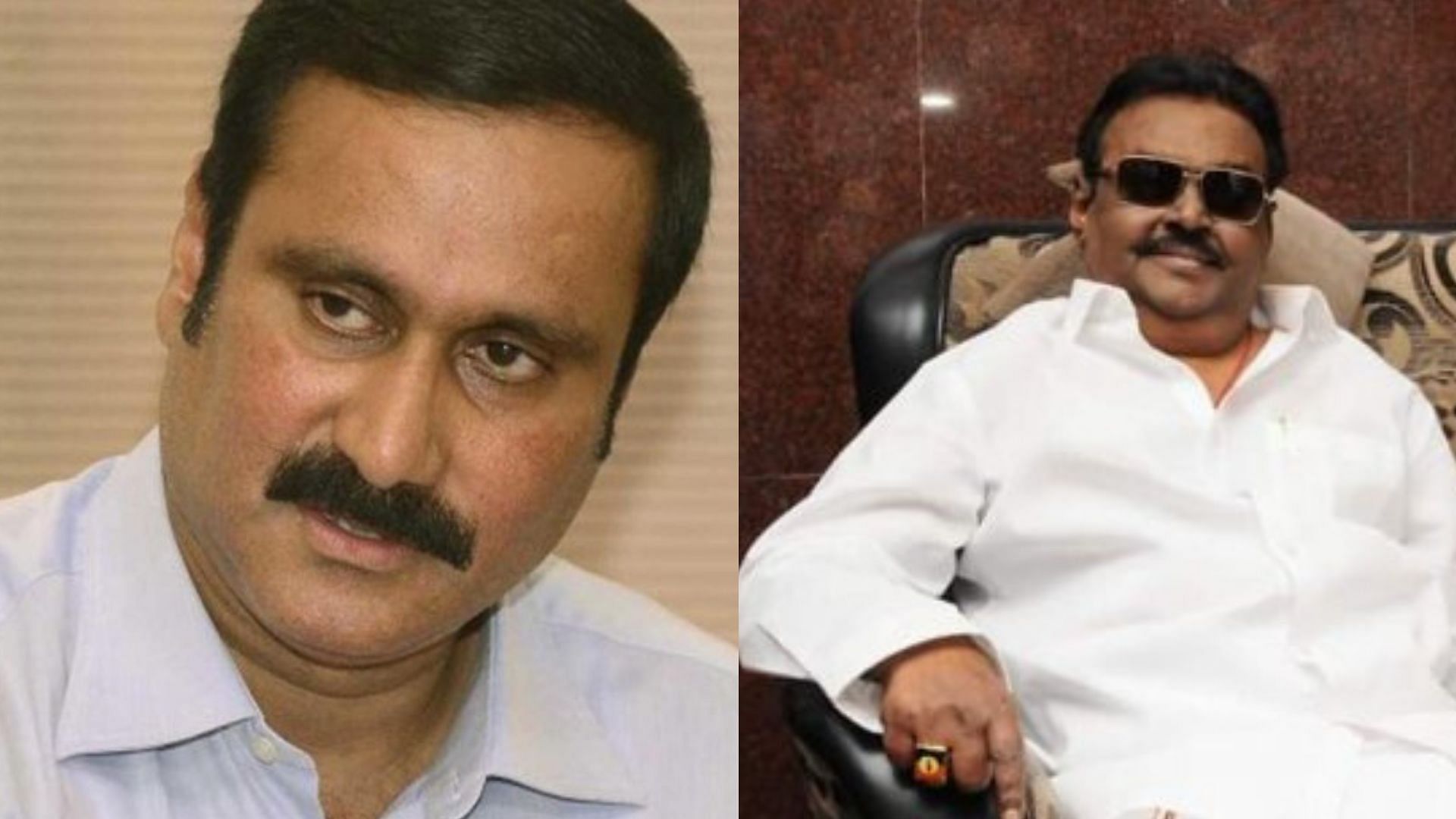
Paatali Makkal Katchi (PMK), an influential political party in northern Tamil Nadu wielding considerable influence among dominant Vanniyars, and actor Vijayakant’s Desiya Murpokku Dravida Kazhagam (DMDK) gain prominence every few months before an election and go into oblivion after the exercise is over.
Yet, they are among the most sought after parties in Tamil Nadu’s political arena dominated by the Dravidian majors, the Dravida Munnetra Kazhagam (DMK) and the All India Anna Dravida Munnetra Kazhagam (AIADMK) because of the committed vote bank these parties possess. Though DMDK’s vote bank has dwindled from 10 per cent in 2009 to 2.41 per cent in 2016, the actor’s political party commanded political significance in the run-up to the elections due to its closeness to the BJP, that wanted to stitch together a rainbow coalition.
When the results of the Lok Sabha elections came out, both parties stood at zero in Tamil Nadu. The drubbing for the PMK was more humiliating as its leader and former Union Health Minister Anbumani Ramadoss lost the party stronghold of Dharmapuri by around 70,000 votes to the DMK.
DMDK, which contested four seats, not just drew a blank, but its candidates also lost by record margins. The party’s embarrassment was complete when Vijayakant’s brother-in-law LK Sudeesh lost to DMK’s Gautam Sigamani, son of senior leader K Ponmudy, by more than 3 lakh votes. In fact, the DMDK almost rocked the AIADMK alliance as its demands for six Lok Sabha seats and a Rajya Sabha seat were not accepted.
Except for 2011 elections, the DMDK has tasted defeat in every single poll it had contested since its launch in 2005, losing its vote bank to the Dravidian parties. Though PMK managed to retain its core vote bank by scoring 5.42 per cent votes, the DMDK could manage only a meagre 2.19 per cent. The going will be tough for both parties in the future, given the scale of the loss as they had considerable influence in northern Tamil Nadu.
Some DMDK candidates and one PMK nominee have even forfeited their deposits as an anti-Modi wave swept the DMK alliance into victory in Tamil Nadu. PMK and DMDK were the biggest losers this election as votes of their major partner, the AIADMK, did not get transferred.
On the other hand, the PMK smoothly transferred its votes to the AIADMK leading to its win in three seats in north Tamil Nadu – Sholingur, Harur and Pappireddipatti – that ensures continuation of the government led by Chief Minister Edappadi K Palaniswami. The PMK had scored more than 25,000 votes in all the three seats in 2016 assembly polls.
“It seems the PMK has virtually burnt its future by aligning with the AIADMK. While the data shows that the PMK has transferred its votes in Assembly elections, the reverse has not happened for the party from AIADMK in Lok Sabha polls. It would be very difficult for the PMK to come out of its loss,” Prof Ramu Manivannan, Head of Department of Politics and Public Administration, University of Madras, told DH.
The PMK, which swung like a pendulum between the two Dravidian majors till 2011, tied up with BJP for 2014 elections and won only in Dharmapuri and went solo in the 2016 assembly polls projecting Anbumani as its chief ministerial candidate. The show flopped miserably with Anbumani himself losing Pennagaram seat by over 15,000 votes. Having nowhere to go, the party quickly grabbed the opportunity given by the AIADMK to join its alliance in February 2019 after having junked the offer from DMK.
The only factor that could bring solace for the PMK is that it has managed to score more than 5 per cent votes, which is a little higher that what it got in 2014 polls. Though the PMK hasn’t fared well, it would still enjoy some clout as the assembly polls approach since the political arena then is expected to be crowded with new players like Rajinikanth and every vote would count for political parties.
For DMDK, it is truly an existential crisis and the party may end-up losing its vote base and cadre to the Dravidian majors in the years to come.